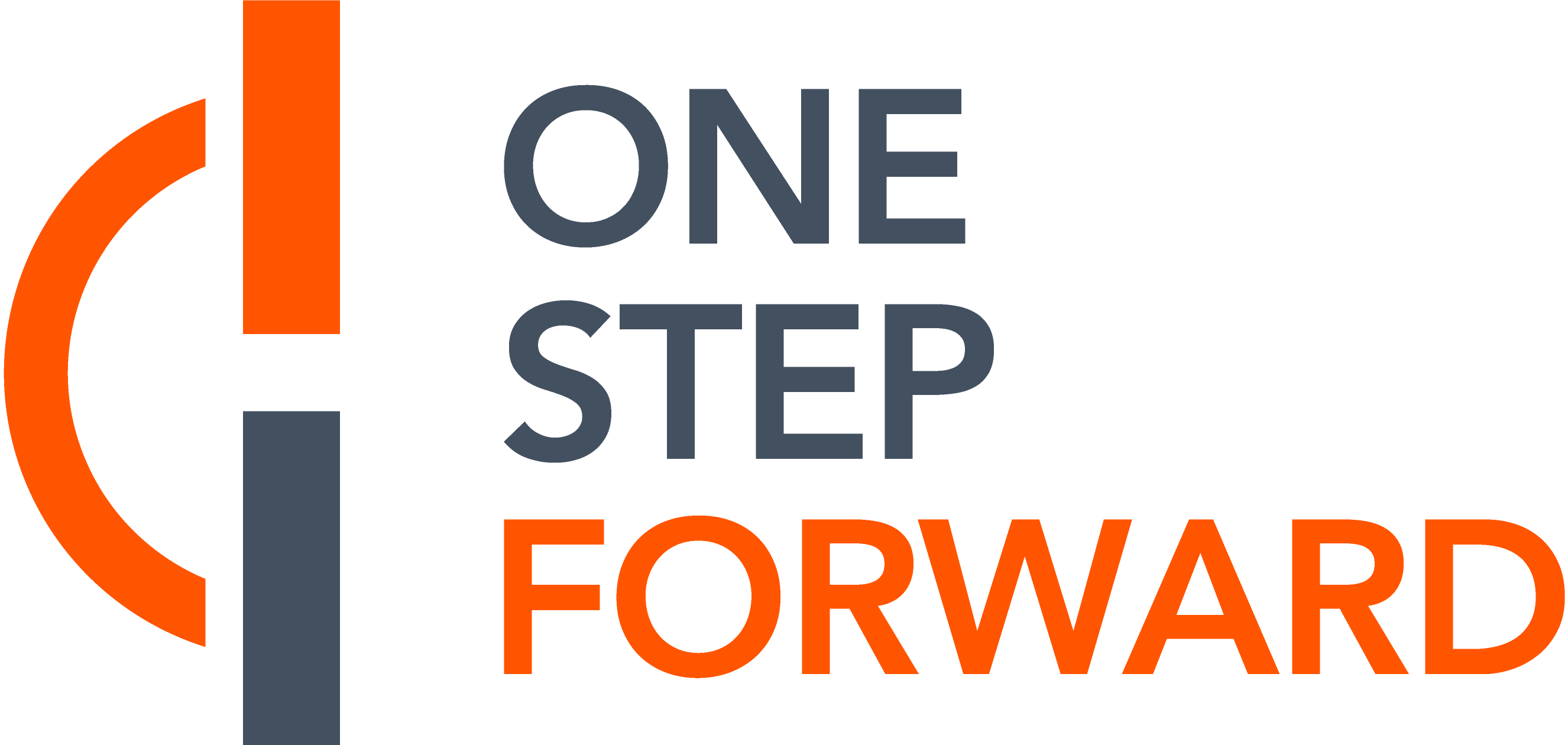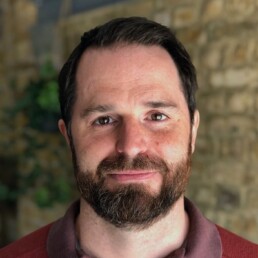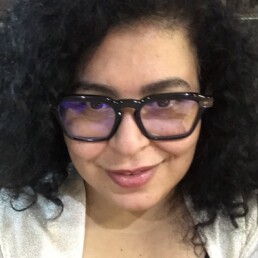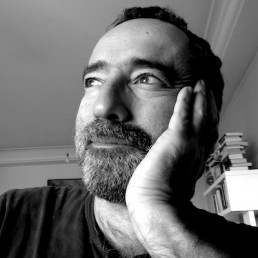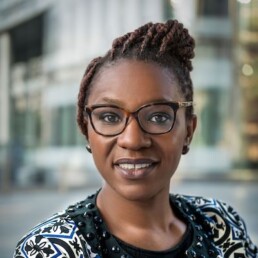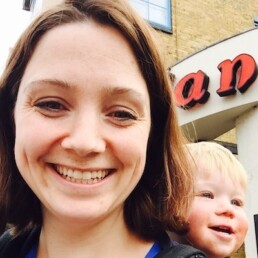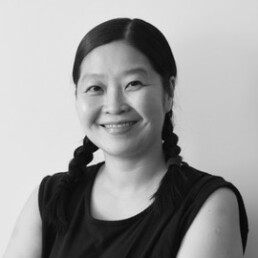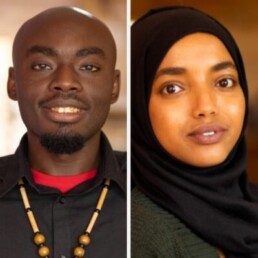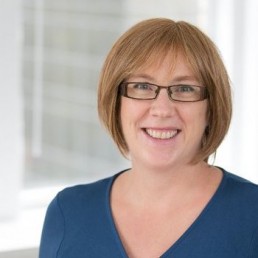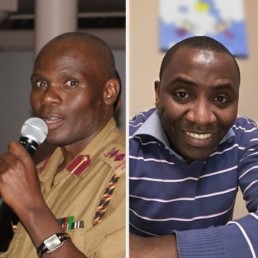#040: We need new stories | Ian D. Quick
Episode notes
This is a wrap-up episode, and it’s a bit different in two ways.
The first is that we’ve switched sides of the microphone. We’ve handed over interviewing duties to Sam Meikle — a social entrepreneur who works on humanity in health and social care.
Conversely, the usual host becomes the subject. We talk a bit about Ian’s formative experiences in the development and conflict management sectors, big-picture challenges that he keeps bumping into, and why oral history felt like a meaningful contribution at this point in time.
The second difference is that we talk more directly about *why* these stories matter. What do they tell us about who “we” are in public service, and how does this differ from the picture we usually get?
What does this have to do with big-picture challenges in international cooperation? What does lived experience contribute to change on issues like anti-racism, and structural gaps and blind spots?
In closing — we sincerely hope that you’ve enjoyed this series, and gotten something new from it. Please keep in touch.
Topics discussed:
[03:40] Dealing with some rather strange ideas about what he does for a living.
[07:05] Early days in western Sydney, Australia. A conviction that mass atrocities and injustices were somehow “un-ignorable”.
[14:00] Finding entry points into public service when there were few obvious channels. Highs & lows of an early experience at the International Criminal Tribunal for Rwanda.
[20:20] Working amidst a downward spiral of mistrust and violence in Sri Lanka. Some harsh early lessons on the limits of international engagement.
[23:05] Getting “off the dance floor” to think hard about your share of the work, and not getting stuck in the same mistakes and dysfunctional patterns.
[27:40] The paradox of public service. Struggles in the sector around self-identity and self-worth, and whether people can thrive in a structurally dysfunctional setting.
[35:30] Moving beyond individual “impact” (and a saviour complex). Other ways of thinking about contribution & worth in international public service.
[43:10] The dark side of tight-knit professional communities. The perils of an insider-outsider culture.
[48:30] Why an oral history series, and why now. Stories that are inherently worth capturing. Finding collective answers to structural problems.
[1:00:00] Finding the right stories. Developing a platform gives people space to speak for themselves, and otherwise stays out of the way.
[1:07:50] The mechanics of making the thing. Avoiding the usual suspects. A brief diatribe on the professional “talking heads” of the development / human rights sectors.
[1:16:50] Searching for a “third space” for conversations about public service. Finding stories that are a truer picture of who “we” are, rather than the usual suspects.
[1:21:15] A closing thought, and an invitation to listeners.
#039: Doing conflict research the right way | Judith Verweijen
Episode notes
Judith Verweijen is a researcher who has spent a decade-plus interviewing soldiers and militias in eastern Democratic Republic of the Congo.
We talk through what her process looks like, what men under arms actually do all day, and the complex social ecosystem that arises in protracted conflicts.
We also talk a lot about the ethics of this work. Not just because many of these groups are implicated in serious human rights violations, but also because there’s a long history of “extractive” research originating in the global North.
As always there are no easy answers here — but this a fascinating conversation with someone who’s produced a lot of fascinating, granular research.
Topics discussed:
[03:45] Pursuing an early interest in Central Africa. Early fascination with what armed groups do, and what lies behind human rights violations.
[11:10] How to dig beneath superficial narratives. Working in remote parts of eastern Congo.
[13:00] The complex ethical questions raised by research with belligerents in an active conflict. Understanding what people actually do, and why they do it, in long-running conflicts.
[17:15] The interactions between armed groups and everyday social fabric. How militants think about their role, and the ethics of what they do.
[26:00] Interactions with policy people, and occasionally intelligence services. Publishing about sensitive topics, and sensitive people.
[31:50] Thinking about success and failure as a professional academic. Highlights and lowlights.
[34:25] Integrating her research into the regular academic world. Staying constantly connected with eastern DRC.
[39:00] Forging human relationships, versus “field work” with “research subjects”.
[44:30] Advice to her younger self. Finding the narrative in complex and contested places. Inspiration from the current generation of (largely female) researchers.
#038: Portrait of a humanitarian country director | Salma Ben Aissa Braham
Episode notes
Salma Ben Aissa Braham is a Tunisian humanitarian professional, and currently Country Director for the IRC in the Central African Republic.
She spent half of her career (so far!) in her home country, and was entering her prime working years around the time of the 2011 revolution.
We talk about that, naturally. We go on to discuss how she’s approached her work in large-scale, seemingly intractable crises in C.A.R. and Yemen.
Another major theme is the complicated relationship between the global South and the global North within the humanitarian profession. We talk at length about peoples’ expectations and biases, and what Salma expects of herself as an Arab, woman professional.
Topics discussed:
[02:20] Explaining the humanitarian profession to friends and family (despite the stereotypes). Early experiences with international organisations in Tunis.
[07:45] Her experience of the 2011 revolution. A change in perspective in the first few months after the flight of Ben Ali.
[13:45] Working on democracy promotion in the region. A close-up encounter with extremism that pointed her in a new direction.
[17:50] Experiences Yemen in 2013, versus those in 2019. Working as an Arab woman in the region.
[22:35] Challenges, successes and lessons from working in the Central African Republic. Believing in local partners and local people.
[29:35] Diversity in management roles in international humanitarian organisations. Encountering some pretty ridiculous stereotypes.
[34:10] How to take “localisation” of humanitarian responses seriously.
[40:10] Plans after international humanitarian work. Her ambitions for Tunisia.
#037: Thinking fast & slow in humanitarian responses | Josep Zapater
Episode notes
Josep is a career humanitarian who’s spent 20+ years with UNHCR working with refugees, and on forced displacement.
But alongside that, there’s something a bit unusual. That twigged for me when we met a few years back in Central Asia — and he started speaking in Tajik to a local community, despite never having worked in the region.
It turned out that alongside a half-dozen European languages he’s also invested in Persian* and Arabic, and that’s kind of the key to this one.
What does it take to listen respectfully, and understand, in contexts where you’re necessarily an outsider? What does good judgment and decision-making look like in contexts that are often cartoonishly fast-paced?
At bottom this is a conversation about professional honesty, and doing the best job you can manage, in complex environments.
(* For the uninitiated, Tajik is a dialect of Persian closely related to Dari. Your fun linguistic fact for the day.)
Topics discussed:
[02:20] Explaining the humanitarian profession to friends and family. Maintaining ties to home over 20+ years.
[06:30] Pivoting from a degree in philosophy to international refugee work. Fast thinking, slow thinking, and the appeal of a job requiring high levels of judgment.
[12:50] Experiences with rushed and ill-conceived approaches in the humanitarian sector. The temptation to think places are simpler, or simply different, than how they really are.
[21:45] Going where the work is, and avoiding capital cities. Learning to be an extravert for practical reasons, and then learning to enjoy it.
[25:55] Making the time for professional honesty, and thinking about success and failure. Reconciling careful decision-making with the everyday pressures of the humanitarian sector.
[32:30] What keeps the work fresh after 20+ years. A formative experience with indigenous groups in Colombia.
[38:10] The trade-offs of working in a large bureaucracy. Fitting a careful and individualistic style into a process-heavy and often trend-driven environment.
[44:20] Overall learning from a long career. Sticking to basic principles as trends come and go.
[54:05] The trade-offs of working in a large bureaucracy. Fitting a careful and individualistic style into a process-heavy and often trend-driven environment.
#036: Changing the development sector from the inside & the outside | Kathryn Nwajiaku-Dahou
Episode notes
Kathryn Nwajiaku-Dahou is Director of the Politics and Governance Programme at the Overseas Development Institute. Past work has included academic posts, several development NGOs, and the OECD’s Development Assistance Committee.
With this in mind, it’s interesting that the recurring theme of this conversation is a rather ambivalent relationship with the aid sector.
She’s worked with some of the marquee names in the sector, but specifically in roles that are critical or reformist in nature.
Equally in talking about her work she is conscious of the seriousness and the stakes of the overall development agenda — but also of the very real limitations on “development” as a business.
In sum this is a conversation about striking that balance — about finding a niche that is professionally honest, and moves things forward.
Topics discussed:
[02:40] Early days in the sector, in east and west Africa. Keeping one eye open as someone who development could be “done”.
[11:00] Lessons from working around the Rwandan genocide. Recognising the asymmetrical and sometimes gung-ho nature of the aid sector.
[16:55] Developing a baseline picture of reality as a reality check on the aid discourse. Advantages and disadvantages of academic work for the critical-minded.
[20:40] A difficult transition to the world of development policy. Perversities in recruitment. The promise of the New Deal for Fragile States, versus the realities of aid politics.
[31:40] The appeal of a management role in development policy, despite the challenges. Stepping up for what is missing in the sector.
[39:25] The UK’s drastic aid cuts. The proper place of aid in the broader development agenda — and what is most exciting right now.
#035: Public policy amidst ever-increasing polarisation | Polly Mackenzie
Episode notes
Polly Mackenzie is CEO at Demos, a cross-party think tank in the United Kingdom. She’s also worked at the centre of government within the 2010-15 coalition, and run a charity focusing on money and mental health.
In the current fractious political environment Demos looks at big challenges like wealth inequality, “building back” after covid-19, and social protection for the most marginalised.
We talk a lot about how to “do” public policy in a complex democracy — in particular how to bring more human experience, more everyday behaviour, into the process.
But we also go deep on what that means for the people who work in public service. What mindset should we start with? How do we set our ambitions, and sense of self-worth, when we can’t possibly control the outcomes?
Topics discussed:
[02:25] Talking about public policy at the school gate, or with family. What opens the door to a good conversation, and what closes it.
[11:00] Early motivations to work in government, possibly due to too many West Wing episodes. A key role in the UK’s coalition government from 2010-15.
[15:20] Dealing with a “crushing” electoral defeat, and finding a new path outside of government. How and why she got started in the third sector.
[24:00] The tough reality of working in politics vs the “seductive” idea of being a change-maker. The severe emotional toll of electoral defeat.
[28:55] Adjusting her criteria for self-worth. Letting go of the “narcissism” of imagining huge changes in the world, and finding ways to make a dent.
[35:00] The role of think tanks in a modern democracy. The imperative of understanding the lived experience of citizens. The tendency of policy wonks to mis-categorise questions as technical rather than emotive and political.
[42:10] What success looks like, seen from a think tank. How we can better grapple with the biggest challenges, like social welfare reform, by legitimising experience and humanity in public policy.
[47:00] Advice to her younger self as a policy analyst. Finding a “third way” between populism and policy elitism.
#034: Amplifying the voices of people impacted by injustice | Dao X. Tran
Episode notes
Dao X. Tran is Managing Editor of Voice of Witness, which develops oral histories and education programs to amplify the voices of people impacted by injustice.
Recent projects have included the aftermath of Hurricane Maria, indigenous Americans, and settlement of refugees in Appalachia. (You can find all their projects here.)
We start with her early years in Philadelphia, as a child refugee in a working class neighbourhood split by serious divides, and a path into social justice activism.
We then get into the ethics and practice of oral history with marginalised communities. How to select stories that matter; how to centre narrators themselves rather than one’s own agenda; and how to bring this to a wider audience.
Topics discussed:
[05:45] Growing up in a refugee and working class neighbourhood in Philadelphia. Not seeing those kinds of narratives reflected in education and popular culture.
[11:00] Identifying areas where oral history projects can add value. Taking strategic decisions about what a US-based organisation can best contribute.
[19:15] The process of doing oral history. Finding interlocutors, building their narratives, keeping yourself out of the way.
[26:40] Avoiding an overall “story”, and a sense of closure that wouldn’t be true to reality.
[30:10] Where oral history fits into formal education. Building spaces for new points of view.
[34:00] Links between oral history of marginalised groups, and social justice activism. What changes because of all this. Doing all this during the covid-19 pandemic, and at the peak of the #blacklivesmatter movement.
[45:35] Finding “urgent” stories and not trying to do everything. Work with Native American communities.
[52:10] Critical tasks. Respecting and supporting narrators rather than introducing one’s own ideas. Respecting their particular voice. A few key influences in this regard.
#033: Trauma-informed peacebuilding in Kenyan communities | Onyango Otieno & Kaltuma Noorow
Episode notes
Kumekucha is a program to help people process conflict and trauma, and to craft new narratives for themselves.
It’s running at the community level in coastal Kenya and Nairobi, for people affected by police brutality, by gang violence, and a whole range of adverse personal circumstances.
(I strongly recommend checking out the Green String Network’s channel on Youtube for some of their short participant videos, which speak much more eloquently than I can.)
In this episode we hear from two of the people involved. Onyango is an accomplished poet and story-teller, as you’ll hear very quickly, and has been very open about trauma in his own life.
Kaltuma is a program manager who is wrapping her head around some very hard questions of design and delivery, and building on a family legacy.
Topics discussed:
(Onyango Otieno)
[02:45] The importance of story-telling around painful experiences. Overcoming his own difficult past.
[07:00] The Kumekucha model for helping people to process trauma and develop a new narrative. Tools & tactics for facilitating this kind of difficult conversation.
[12:00] How change at the individual level relates to entrenched problems at the community or institutional level.
[14:10] Experimenting with a Whatsapp platform as an enabling space for necessary conversations, including about mental health.
[17:40] Managing his own wellbeing when facilitating this kind of draining conversation. Ethical challenges dealing with institutions like the national police.
[24:20] The need for a paradigm shift in Kenya around mental health. Key influences and inspirations when growing up.
(Kaltuma Noorow)
[29:35] Trauma within different communities in Kenya. Crime, abuse of authority, domestic abuse, and violent extremism.
[33:30] The community-based trauma healing model. Mobilising resourceful people. Finding helpful ways to facilitate this kind of tough conversation.
[36:55] Some experiences with how people changed and moved past trauma. And some where people didn’t succeed and slipped backwards.
[42:00] Dealing with the fact that most participants live in very difficult circumstances. Setting the right expectations, and finding agency where it’s possible.
[45:55] Feeling like an outsider as a Somali-Kenyan. When it’s useful to be conscious of difference as well as connection.
[48:45] Managing the tensions & risks of holding a space for people on extraordinarily sensitive subjects.
[52:05] Building on her mother’s legacy of conflict resolution in northern Kenya. Dealing with conflict in her own life before (and while) trying to help others.
#032: Evolving humanitarian organisations to where they need to be | Kate Moger
Episode notes
Kate Moger is Regional Vice-President for the Great Lakes region at the International Rescue Committee. She’s based in Nairobi, although currently that’s in flux due to COVID-19.
We start with her rather interesting route into the sector by way of a dubious Russian travel agency, some traumatic early experiences, and how and where this turned around into a fulfilling career.
We then go deep on professionalisation and ethics in the humanitarian sector, and what this means for managing people in the present day. This includes her own experiences caring for a young child, and where the sector still needs to grow away from its macho roots.
Topics discussed:
[02:45] Avoiding conversations about her work. Why it’s hard when things tend to get ‘quite deep, quite fast’.
[06:25] A trajectory that runs through the UK, South Sudan, DR Congo, Cote d’Ivoire, Mali, and Kenya. But starting off at a questionable Russian travel start-up in a living room.
[11:45] Working for deaf-blind people and children at risk in the UK. Studying at the same time to help do justice to the seriousness of the work.
[15:10] Landing in South Sudan not terribly well prepared. Several hard learning moments, and returning to the UK in a fragile condition.
[22:50] A very different experience in the DR Congo. Changing her attitude to people, and to learning. How the humanitarian system approaches those critical first few early-career jobs.
[29:40] The appeal of working in politically tough and insecure environments. The importance of solidarity, and looking for situations where there’s a very clear case for outside help.
[37:55] Worrying about taking up space that would be better filled by others. Necessary structural changes in the humanitarian sector, including difficult conversations about power.
[47:00] Lessons learned over a long career. People being emotionally ready to change the way the humanitarian sector operates.
[50:30] How the sector treats its people. Experiences as a mother.
#031: Healing the uniform | Gitahi Kanyeki & Bonface Beti
Episode notes
Gitahi Kanyeki is a 36-year veteran of the Kenya National Police Service. His career spans operations against cattle rustlers in Turkana, to extraordinary violence in Nairobi after the 2008 elections, to internal action against serious misconduct.
That history has entailed more than anyone’s fair share of traumatic experiences, both for him and for his family.
In this episode we talk about what that was like to live and work through — and beyond that what can be done, and is being done, for trauma recovery within an institution like the NPS.
In the second half we switch perspective to Bonface Beti. He’s a program manager with the Green String Network, and he speaks very eloquently about the hopes, dilemmas and practicalities of working with individuals that are more often labelled as perpetrators than victims.
All this has taken on particular interest with the current heavy-handed response to COVID-19 in Nairobi. What is going on behind the riot shields and uniforms? What does an impossible political task for the institution mean for the individuals working within it?
Topics discussed:
(Gitahi Kanyeki)
[02:40] Outline of a 36-year career in the Kenyan National Police Service, spanning cattle rustling in Turkana to post-election violence in Nairobi.
[06:15] Stress, trauma and violence in the everyday life of a police officer. The effects on self and family over time.
[14:15] Support structures within the police service for mental health. First steps in taking these issues more seriously.
[16:00] Personal experiences with patrols gone wrong and extreme violent incidents. Recognising the symptoms of trauma.
[20:15] Reactions within the police service when discussing trauma. How to facilitate this kind of conversation in a culture that is often not receptive.
[24:15] Moving from individual conversations to a structured group approach. The tricky task of building police confidence and trust in a trauma healing process.
[29:25] Future plans, both for mental health in the police service and post-retirement.
(Bonface Beti)
[32:10] How trauma healing work with individual police officers connects with bigger social challenges and conflicts in Kenya.
[35:35] The move from peacebuilding performing arts to work with the national police service. How it all fits together.
[40:10] Tools & tactics for building a “brave space” for authentic conversation. Breaking the mould of a macho, hierarchical culture.
[44:10] What happens when people leave the room. The prospects for a small, group-based intervention to effect real changes in a massive institution.
[47:30] How Bonface personally came to be involved. The limitations and frustrations of peacebuilding initiatives as they tend to be approached in Kenya.
[51:40] Pushback from his activist and peacebuilding colleagues on work with the police service. Moving beyond black/white and perpetrator/victim narratives.
A deeper look
Ahmed Famau Ahmed is one of the facilitators that works with the “Healing the Uniform” initiative.
But he’s not a career professional. Instead he came into this because of his own history of being arrested, interrogated, and mistreated by the police.
In this conversation he talks about his experiences growing up in coastal Kenya, police profiling on the basis of his dialect and appearance, and introducing that perspective to a training room.
